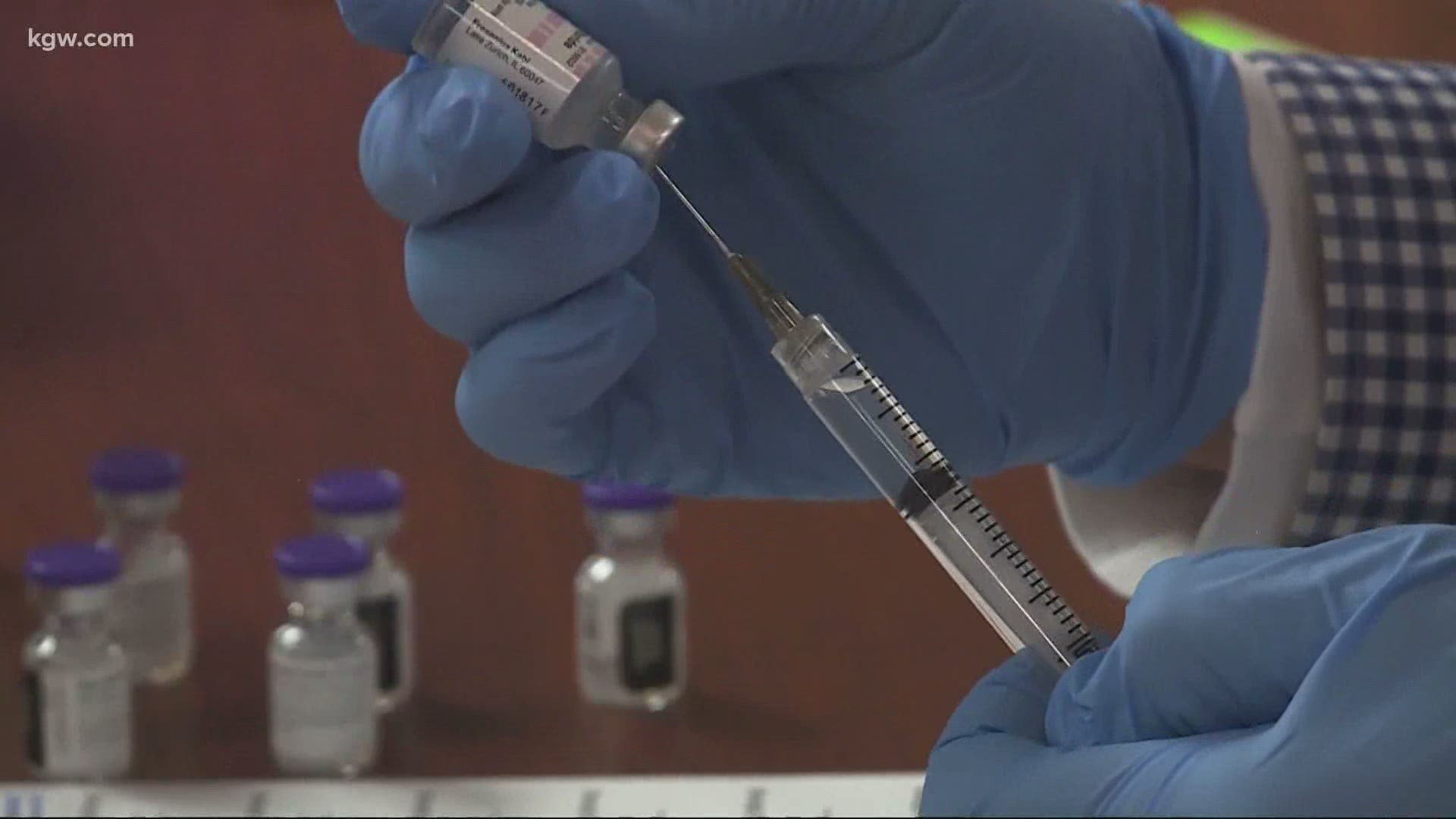SALEM, Ore — The Oregon COVID-19 Vaccine Advisory Committee has a new recommended list of priority groups for the Oregon Health Authority (OHA) to review.
The 27-member committee met for the fourth time in nine days Thursday, focused on vaccine equity. The goal is to help OHA prioritize the next groups in line for the COVID-19 vaccine after teachers and people over 65.
A big focus of the discussion was BIPOC — Black, indigenous, people of color. Many minority communities have been disproportionately impacted by COVID-19, experiencing more cases and deaths per capita.
Less access to health care, insurance and culturally specific health resources are all factors. Some minority communities also make up a large portion of the essential frontline workforce.
"It's really the structural factors that we came into this pandemic with that have allowed these gross inequities," explained Dr. Dean Sidelinger with OHA.
Sidelinger outlined state and national data to back this up, particularly for Black, Latinx, Pacific Islander, Native American and refugee communities. Disproportionately impacted refugee communities include some white people, too, such as Oregon's Slavic community.
The committee spent two hours negotiating which groups should be recommended for priority.
"Using these broad categories without explicitly prioritizing BIPOC communities risks diluting efforts and causing harm," said Dr. Derick Du Vivier of the Oregon Health Policy Board.
Dr. Kalani Raphael from the Oregon Pacific Islander Coalition said seniors and people of color both need priority.
"As a physician, the people I'm seeing are older people," Raphael said. "The people I'm seeing in the hospital are from minority communities ... We should follow the data ... prioritize communities that are disproportionately impacted."
Committee member Zhenya Abbruzzese from Adventist Health asked about vaccine supply when it comes to accomplishing priority goals.
"How can this actually be operationalized? Because we're talking about an actual plan to save lives," Abbruzzese said.
Rachael Banks of OHA responded during the meeting, saying the priority list from the committee would come into play once there are enough vaccines available.
"Shortly, there's not enough vaccines. It'll take a long time," Banks said.
Others in the group emphasized a need for quick decision-making. They said the committee's role is to recommend priority in the interest of public health, while OHA sorts out logistics.
"We're in an urgent situation, we need to move forward," said Marin Arreola of Interface Network. "A lot of white people are getting vaccinated, who don't meet [requirements] — are young people, not sick, upwardly mobile — and so there's really disparities there."
The group ultimately voted to move ahead with this list, in no particular order:
- BIPOC, those historically underserved and disproportionately impacted during the pandemic
- Refugees
- People 16-64 with chronic conditions
- Adults and youth who are in custody
- Frontline workers
- People living in multigenerational homes
- People in low-income senior housing and people under 65 in other congregate living
Leslie Sutton with the Council on Developmental Disabilities emphasized OHA should take recommendations to heart and follow through with action.
"What I see from this committee and these members is hope," Sutton said. "Hope that we can make things different. Hope that we can get this vaccine to the right people. And what I can tell you is that there is a promise that's being broken every single day."
OHA will make a legal review of the recommendations before circling back with the committee next week.
The committee will meet again on Tuesday and Thursday to further discuss challenges with vaccine distribution and overcoming vaccine hesitancy within different communities.

